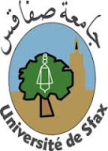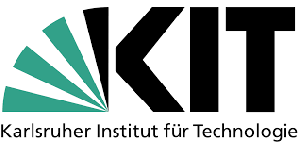Foster better access to the market of the innovation developed: ImPUlSe aims to increase awareness amongst key stakeholders about socio-economic impacts of innovation adoption along citrus (by-product) supply chain through direct engagement with key stakeholders within four pilot countries. Firstly, IKH will support and host knowledge and insights gained from multi-stakeholders throughout the supply chain. Secondly, ADSS will provide state-of-the-art insights to inform and reform the entire supply chain. ImPUlSe will increase integration along agri-food chains to promote product and process innovations, expansion to new markets, and agri-food product diversification in respect to economic, environmental, and social sustainability.
Sharing experiences and innovations (including process) among multi-stakeholders: ImPUlSe will support the actors engaged in citrus (by-products) supply chains in identifying joint co-operation opportunities on overcoming barriers of commercialization and industrial use of wasted products. Circularity is based upon stakeholders engagement, which aim to identify collaboration synergies to create value. Empowering citrus chain actors, improving market mechanisms, technological transformation, and empirical research to better understand systemic levers of innovation implementation lead to substantial improvements in the value chain. Economic performance, competitiveness and resilience in the face of external environmental and economic instability are in the base of ADSS design and implementation. Scenario-Based Simulations Models, quantitative and qualitative interviews, co-creation workshops in all four countries will help to understand consumers' perceptions on citrus by-products use and will give decisive information on development of citrus by-products. Managers of farmer associations, food processors and buyers will be equipped with a core set of agribusiness management skills, such as marketing, strategic procurement, logistics concept, food safety and standards, good agricultural practices and post- harvest handling, storage and inventory management. These training programs will create new job perspectives, increasing employment in the sector.
Enhance sustainability of the small-scale farming systems and preservation of natural resources: Implementation of smart solutions, in addition to numerous business and organizational improvements, will dramatically increase efficiency in water and energy consumption. Effective use of data and decision support systems is the key to efficiency in citrus supply chain. Automation of data capture and analysis provides a reliable way to implement sustainability assessment. One of the major challenges to enhance sustainability is the fact that assessing the sustainability of current practices is overly difficult, costly and time consuming. These assessment methods, even when implemented, are not useful for operational decision making. ImPUlSe will develop integrated sustainability assessment methods which can be tightly coupled with operational and strategic decision making.
Enhance innovation capacities and appropriate technology transfer of existing or new infrastructures: Information sharing within IKH will be done by participatory strategies to involve stakeholders in the co-creation of solutions, in a gender inclusive way, supported by the latest digital transformation technologies. It will address stakeholder needs and limitations considering investment scarcities, gender, age and inclusiveness constraints, facilitate knowledge, awareness of transparency, massive changes in culture and behaviour, new services and jobs particularly for smallholders. Specific research on the collection, sorting and pre-treatment processes will be carried out to ensure a high-quality secondary raw material for the new by-products. Completely integrated processes for each type of the by-products, as well as the improvements achieved in food processing, logistics and recovery stages will be demonstrated with operational trials. Based on cost and benefits analysis new circular value creation management, combined with logistical solutions will be integrated into the business development of citrus supply chains. The business models will be analyzed for multiplication and scalability potential, enabling the transition towards circular economy within Mediterranean region.





















